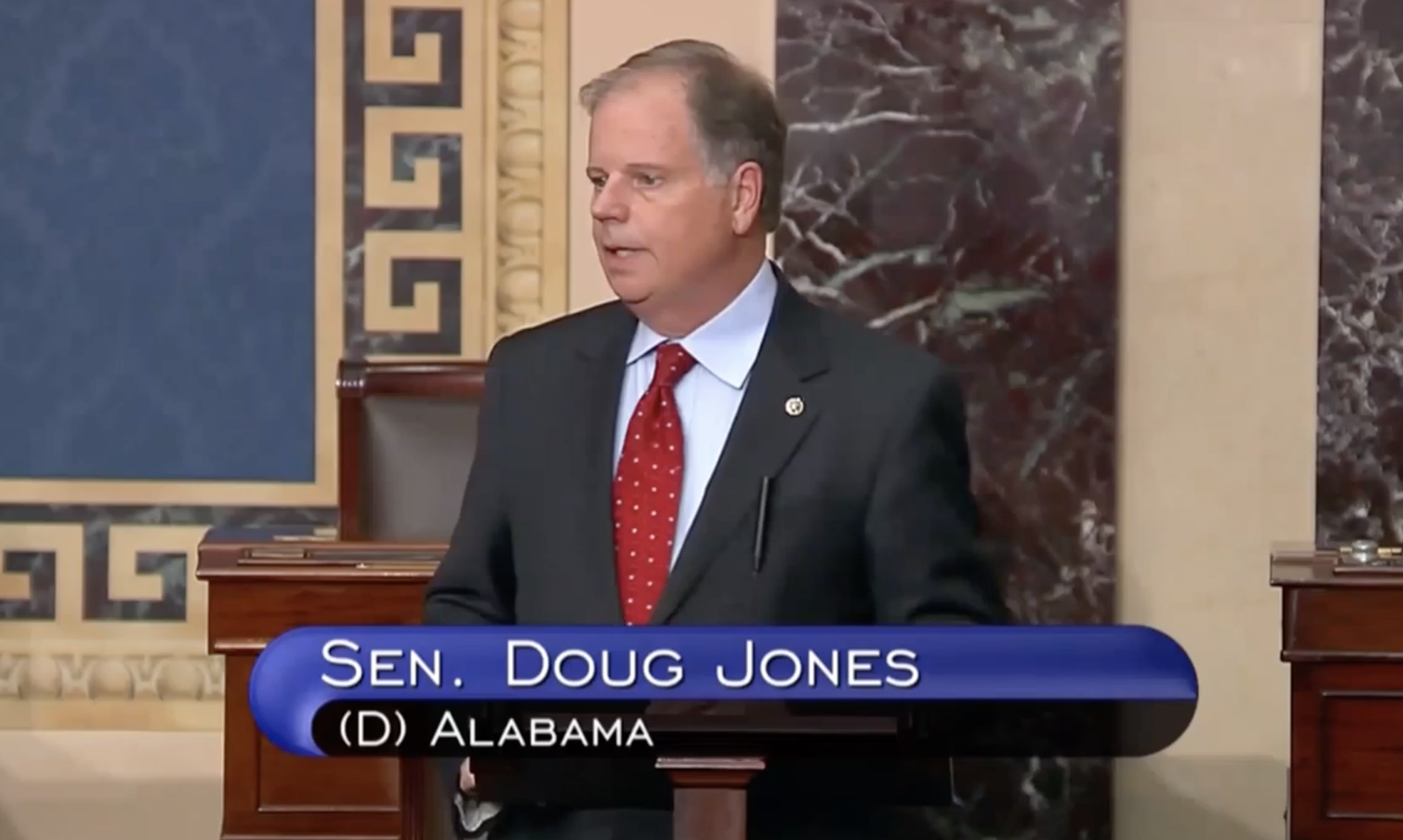U.S. Sen. Doug Jones, D-Alabama, on Wednesday voted to remove President Donald Trump for office, and said before the vote that he thought of his late father’s character when making his decision.
Jones faces a tough reelection battle, but has said throughout the impeachment proceedings that his decision would be made based upon the evidence and not on personal political maneuvering.
Jones’s father, Gordon Jones, died on Dec. 28, 2019. Speaking of his father on the Senate floor before the vote Wednesday Jones said his father was a patriot who loved the country.
“Although fortunately he was never called on to do so, I firmly believe he would have placed his country even above his family,” Jones said. “Because he knew and understood fully what America, and the freedoms and liberties that come with her, mean to everyone in this great country, and significantly, to people around the world.”
“Candidly, to my colleagues on both sides of the aisle, I fear that moral courage, country before party, is a rare commodity,” Jones said.
Jones called on the country to move beyond partisan divides, and expressed concern that the Senate’s 51-49 vote to reject calling additional witnesses or documents sets a dangerous precedent.
“It is my firm belief that the American people deserve more. In short, witnesses and documents would provide the Senate and the American people with a more complete picture of the truth, and I believe the American people deserve nothing less,” Jones said.
Jones said that throughout the trial one thing stuck with him, and it was Trump’s own words that under Article II in Constitution “I have to the right to do whatever I want as president,” according to The New York Times.
“That seems to capture this President’s belief about the presidency, that he has unbridled power, unchecked by Congress, or the judiciary, or anyone else,” Jones said. “That view, dangerous as it is, explains the President’s actions toward Ukraine and Congress.”
The U.S. House on Dec. 18 voted to approve two articles on impeachment against impeached Trump, agreeing that he both abused his power and obstructed Congress by thwarting attempts to investigate that abuse.
During the House impeachment trial evidence and witness testimony alleged that Trump withheld military aid to Ukraine, a country at war with Russia, and a White House meeting for the country’s president to pressure Ukraine to announce an investigation into Trump’s political rival, Joe Biden, and Biden’s son Hunter Biden.
After the articles of impeachment were delivered to the Republican-conrolled Senate, it wasn’t long before Republicans appeared to have the votes to acquit the President.
Jones said Monday that it was clear Trump had abused his power, as one article of impeachment accused him of doing, but he struggled when deciding on the second article, which accused Trump of obstructing Congress.
“However, after careful consideration of the evidence developed in the hearings the public disclosures, the legal precedents and the trial, I believe that the President deliberately and unconstitutionally obstructing Congress by refusing to cooperate with the investigation in any way,” Jones said.
Jones said that he was mindful that he was standing Monday at the same desk that President John F. Kennedy once stood at, author of the book “Profiles in Courage.”
“And there will be so many who will simply look at what I’m doing today and say it is a profile in courage. It is not,” Jones said. “It is simply a matter of right and wrong, where doing right is not a courageous act. It is simply following your oath.”
Senators voted 48-52 not to convict Trump on the article charging him with abuse of power. The vote acquitting him on the obstruction of Congress charge was 47-53.
Sen. Richard Shelby, R-Alabama, voted against conviction Trump on both articles.
Sen. Mitt Romney, R-Utah, was the only Republican who voted to convict Trump on either articles of impeachment. He voted to convict on the abuse of power charge but voted not guilty on the other article.


















































